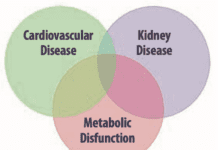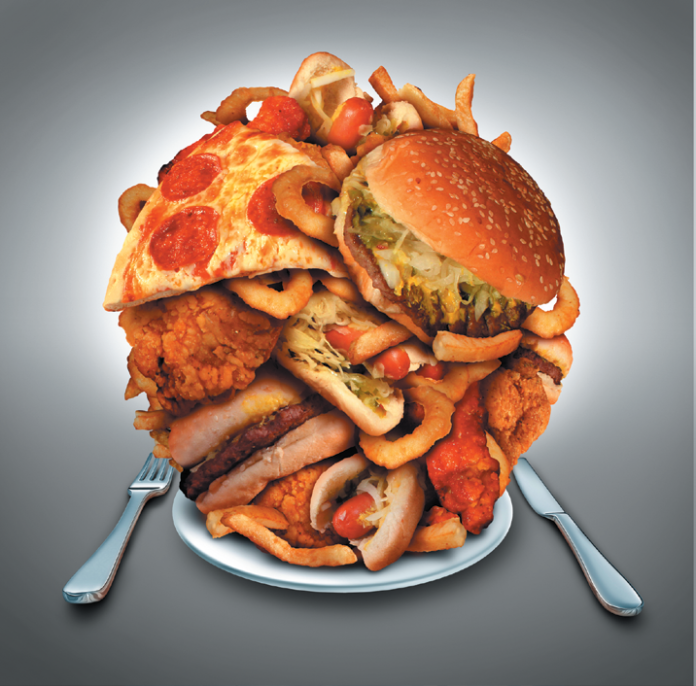The more ultraprocessed foods (UPFs) we consume, the worse our cardiovascular health is likely to be, a new study suggests. UPFs are mixtures of industrially refined starches, sugars, fats, isolated proteins, and other additives with little, if any, whole food ingredients (for example, most breakfast cereals, energy bars, instant soups, pre-packaged cookies and cakes, some chicken nuggets, and many packaged salty snacks). Previous research has found high intake of UPFs to be associated with overweight, obesity, high triglyceride and LDL cholesterol levels, high blood pressure, type 2 diabetes, cardiovascular disease, and death. The current study compared participants’ level of UPF intake with a score of how they measured up to the American Heart Association’s seven metrics of cardiovascular health: body mass index, smoking, physical activity, dietary quality, total serum cholesterol, blood pressure, and fasting blood sugar.
More than half the total calorie intake in this representative sample of U.S. adults came from UPFs. Higher intake of UPFs was associated with lower cardiovascular health scores. People who consumed the most ultraprocessed foods were more likely to have diabetes compared to people who consumed the least. They were also more likely to be overweight or obese, smoke, and be less active.

























More than half the total calorie intake in this representative sample of U.S. adults came from UPFs. Higher intake of UPFs was associated with lower cardiovascular health scores. Is typo? error
My error
“Lower cardiovascular health score” means poorer health for the heart and vascular system, right? That is, lower scores on health measures, not on disease measures?